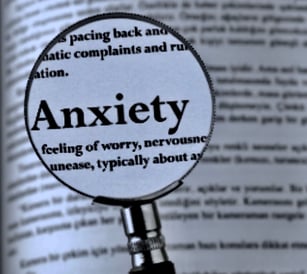 In the United States, more than 18% of adults are affected by anxiety disorders each year, making it one of the most common mental health issues. Anxiety involves a person feeling disproportionate and sustained distress, worry, or fear in response to an emotional trigger. Anxiety is a normal, necessary emotion, and it can have a wide range of causes.
In the United States, more than 18% of adults are affected by anxiety disorders each year, making it one of the most common mental health issues. Anxiety involves a person feeling disproportionate and sustained distress, worry, or fear in response to an emotional trigger. Anxiety is a normal, necessary emotion, and it can have a wide range of causes.
In the sections below, you can learn about a wide range of natural and home remedies that can help with stress and anxiety.
However, alterations to the diet and some natural supplements can change the way antianxiety medications work, so it is essential to consult a doctor before trying these solutions. The doctor may also be able to recommend other natural remedies.
1. Exercise
Exercise is a great way to burn off anxious energy, and research tends to support this use.
For example, a 2015 review of 12 randomized controlled trials found that exercise may be a treatment for anxiety. However, the review cautioned that only research of higher quality could determine how effective it is.
Exercise may also help with anxiety caused by stressful circumstances. Results of a 2016 study, for example, suggest that exercise can benefit people with anxiety related to quitting smoking.
2. Meditation
Meditation can help to slow racing thoughts, making it easier to manage stress and anxiety. A wide range of meditation styles, including mindfulness and meditation during yoga, may help.
Mindfulness-based meditation is increasingly popular in therapy. A 2010 meta-analytic review suggests that it can be highly effective for people with disorders relating to mood and anxiety.
3. Relaxation exercises
Some people unconsciously tense the muscles and clench the jaw in response to anxiety. Progressive relaxation exercises can help.
Try lying in a comfortable position and slowly constricting and relaxing each muscle group, beginning with the toes and working up to the shoulders and jaw.
4. Writing
Finding a way to express anxiety can make it feel more manageable.
Some research suggests that journaling and other forms of writing can help people to cope better with anxiety.
A 2016 study found that creative writing may help children and teens to manage anxiety.
5. Time management strategies
Some people feel anxious if they have too many commitments at once. These may involve family, work, and health-related activities. Having a plan in place for the next necessary action can help to keep this anxiety at bay.
Effective time management strategies can help people to focus on one task at a time. Book-based planners and online calendars can help, as can resisting the urge to multitask.
Some people find that breaking major projects down into manageable steps can help them to accomplish those tasks with less stress.
6. Aromatherapy
Smelling soothing plant oils can help to ease stress and anxiety. Certain scents work better for some people than others, so consider experimenting with various options.
Lavender may be especially helpful. A 2012 study tested the effects of aromatherapy with lavender on insomnia in 67 women aged 45–55. Results suggest that the aromatherapy may reduce the heart rate in the short term and help to ease sleep issues in the long term.
7. Cannabidiol oil
Cannabidiol (CBD) oil is a derivative of the cannabis, or marijuana, plant.
Unlike other forms of marijuana, CBD oil does not contain tetrahydrocannabinol, or THC, which is the substance that creates a “high.”
CBD oil is readily available without a prescription in many alternative healthcare shops. Preliminary research suggests that it has significant potential to reduce anxiety and panic.
8. Herbal teas
Many herbal teas promise to help with anxiety and ease sleep.
Some people find the process of making and drinking tea soothing, but some teas may have a more direct effect on the brain that results in reduced anxiety.
Results of a small 2018 trial suggest that chamomile can alter levels of cortisol, a stress hormone.
9. Time with animals
Pets offer companionship, love, and support. Research published in 2018 confirmed that pets can be beneficial to people with a variety of mental health issues, including anxiety.
A 2015 study found that caring for crickets could improve psychological health in older people.
Spending time with animals can also reduce anxiety and stress associated with trauma. Results of a 2015 systematic review suggest that grooming and spending time with horses can alleviate some of these effects.

